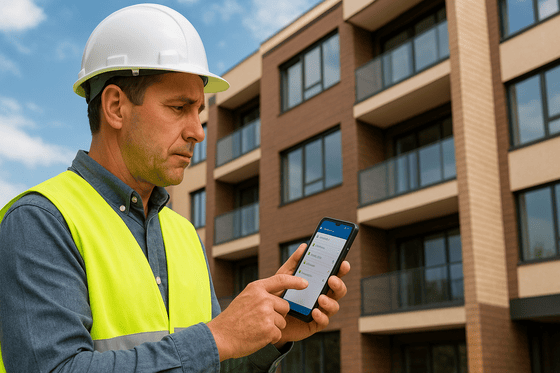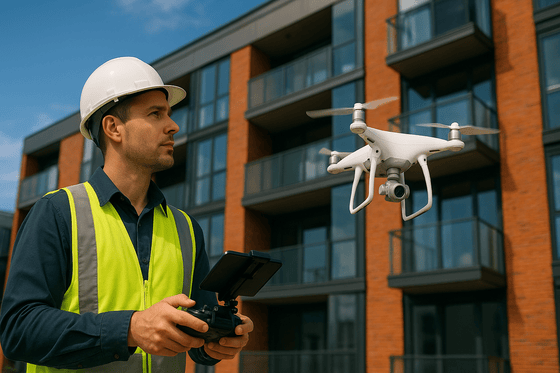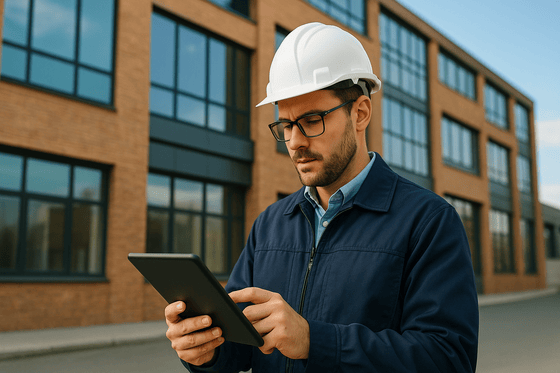Building Inspection Industry Reports
Building Inspection - Industry Reports Outlined
Building Inspections Across Industries
As a building inspector, having a solid understanding of the different types of inspections required within the various industries you serve is essential to providing the highest quality service to your clients. From the building industry to real estate and commercial, government, and safety and compliance, each sector has its own unique set of requirements.
That's why we've created this comprehensive guide of the different types of inspections that a building inspector can perform within these industries. By consolidating your knowledge of the various types of inspections available, you'll be better equipped to offer more comprehensive service to your clients.
Whether you're new to the industry or a seasoned pro, this guide will provide valuable insights into the world of building inspections. So read on to discover everything you need to know about the different types of building inspections and how they can help you provide the best service possible to your clients.
Building Industry Inspections
The building industry is a crucial part of our society, responsible for creating and maintaining the spaces in which we live and work. However, ensuring that buildings are safe, functional, and compliant with regulations can be complex. That's where building inspectors come in. They provide a range of inspection services designed to ensure that buildings meet the required standards. In this article, we'll take a closer look at some of the critical inspection reports that building inspectors conduct.
Pre-Purchase Building Inspections:
Pre-purchase building inspections are inspections designed to identify any structural issues or defects in a building before it is purchased. These inspections cover all aspects of the building, including its structural integrity, electrical, plumbing, safety systems. Pre-purchase building inspections are crucial for identifying potential issues and protecting the buyer's investment.
Pre-Purchase Building & Timber Pest Inspection:
A Pre-Purchase Building & Timber Pest Inspection is a comprehensive assessment that helps potential buyers make informed decisions before purchasing a property. This inspection covers all accessible areas of the property, including the building's interior, exterior, and roof void, subfloor space, and outbuildings. The inspection evaluates the property's structural integrity, plumbing, electrical, and mechanical systems, and identifies any evidence of timber pest infestations, such as termites or borers. The inspection report outlines any issues or defects found, helping the potential buyer negotiate the purchase price or request remedial action before finalizing the sale. A pre-purchase building inspection is a crucial step in protecting the buyer's investment and ensuring their peace of mind.
Pre-Purchase Pest Inspections:
Pre-purchase pest inspections are inspections designed to identify any pests, such as termites or rodents, that may be present in a building before it is purchased. These inspections are essential to prevent future damage and ensure that the property is safe for occupation.
Pre- Settlement Inspection:
A pre-settlement inspection is a type of building inspection conducted by the buyer of a property just before settlement. It ensures that the property is in the same condition as at the time of sale, and any agreed-upon repairs or maintenance have been completed satisfactorily. While a building inspector is not always required for this type of inspection, it is recommended to engage a qualified and experienced inspector to provide an objective and professional assessment of the property's condition and help negotiate any necessary repairs with the seller.
Annual Pest Inspections:
Annual pest inspections are inspections designed to identify any pests, such as termites or rodents, that may be present in a building on an ongoing basis. These inspections are essential for maintaining a pest-free environment and preventing damage to the building.
Handover Inspections:
Handover inspections are inspections designed to identify any defects or issues with a building before it is handed over to the owner. These inspections are essential for ensuring that the building meets the required standards and that any issues are addressed before the owner takes possession of the property.
Dilapidation Surveys:
Dilapidation surveys are inspections designed to identify any existing damage to adjacent properties before construction work commences. These inspections are essential for protecting the owner's investment and ensuring that any damage caused by construction work is identified and addressed.
Defect Inspections:
Defect inspections are inspections designed to identify any defects or issues with a building. These inspections cover all aspects of the building, including its structural integrity, electrical, plumbing, and fire safety systems. Defect inspections are crucial for identifying potential issues before they become more significant problems.
Owner Builder Inspections:
Owner builder inspections are inspections designed to ensure that buildings constructed by owner-builders meet the relevant building codes and standards. These inspections cover all aspects of the building, including its structural integrity, electrical, plumbing, and fire safety systems.
Special Purpose Inspection:
A special purpose inspection is a type of building inspection that is tailored to specific requirements, such as pre-purchase inspections or compliance audits. The inspection should be conducted by a qualified inspector who inspects the building interior, exterior, roof space, subfloor, roof exterior, and the site within 30 meters of the building. The inspector should identify any significant defects or hazards in each of these areas and provide recommendations for remediation or further investigation as necessary. The purpose of the inspection is to provide an overall assessment of the property's condition and ensure it meets relevant standards and regulations.
Strata inspection:
A strata inspection is a type of building inspection carried out on properties such as apartments, townhouses, units or commercial buildings that are part of a strata scheme. It assesses the condition of the property, common areas, and strata records, to identify any potential issues and assess the property's value and safety. It is particularly important for apartment blocks and commercial buildings with multiple owners, and helps to inform purchase decisions and ongoing property management.
Structural Inspection:
A Structural Inspection is an inspection that focuses on assessing the structural integrity of a building's load-bearing elements, such as the foundation, walls, columns, and beams. During the inspection, the building inspector evaluates these elements for signs of damage, deterioration, or movement, using tools such as moisture meters, thermal imaging cameras, or laser levels. The inspection report provides details on any defects or issues found and may include recommendations for remedial action.
Construction Defect Inspections:
Construction defect inspections are inspections designed to identify any defects or issues with a building during or after construction. These inspections cover all aspects of the building, including its structural integrity, electrical, plumbing, and fire safety systems. Construction defect inspections are essential for identifying potential issues before they become more significant problems.
Mould Inspection:
A mould inspection focuses on identifying the presence of mould in a property. Mould is a common problem that can occur in buildings due to excess moisture or water damage, and can cause a range of health issues. During a mould inspection, a qualified inspector will conduct a visual inspection of the property, looking for visible signs of mould, such as discoloration, staining, or musty odours. They may also use equipment such as moisture meters, thermal imaging cameras, or air quality tests to identify hidden sources of moisture or mould growth. Once the inspection is complete, the inspector will provide a report outlining any issues found and recommendations for remediation, such as cleaning or repairs to prevent further mould growth.
Methamphetamine inspection (Meth):
A methamphetamine inspection focuses on identifying the presence of methamphetamine or "meth" residues in a property. Methamphetamine is a highly addictive drug that can be produced in makeshift laboratories, leaving behind dangerous and toxic residues that can pose serious health risks to occupants. The inspector visually inspects the property for drug use or production signs, takes samples to test for methamphetamine residues, and provides a report outlining any issues found and recommendations for remediation, which may include decontamination.
Asbestos Inspection:
An asbestos inspection focuses on identifying the presence of asbestos-containing materials (ACMs) in a property. Asbestos was widely used in building materials until the 1980s when it was found to be a health hazard, particularly when inhaled. During an asbestos inspection, a qualified inspector will conduct a visual inspection of the property, looking for materials that contain asbestos, such as insulation, ceiling tiles, or vinyl flooring. They may also take samples of suspected materials to test for asbestos fibres. Once the inspection is complete, the inspector will provide a report outlining any issues found and recommendations for remediation, which may include asbestos removal or encapsulation by a licensed asbestos removalist.
Why Building Inspectors are Important
Building inspectors play a critical role in ensuring that buildings are safe, functional, and compliant with regulations. They provide a range of inspection services designed to identify any issues or defects with a building. By using the Building Inspection App, building inspectors can inspect with precision and report with confidence.
The Building Inspection App is designed to streamline the inspection process. With features such as Customised forms, voice-to-text and photo annotation, the Building Inspection App ensures that inspectors can report their findings clearly and with the highest level of accuracy.
If you're a building inspector looking to improve your inspection process and enhance your reports, start using the Building Inspection App for Free today.
Ready for more insights?
Dive into our next related blog article to continue expanding your knowledge and stay ahead in the building inspection industry. Safety & compliance Inspections






